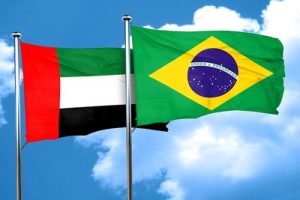 The City Football Group (CFG), the self-styled ‘world’s largest owner and operator’ of football clubs, has added a thirteenth team to their network as their pursuit of global domination continues at pace.
The City Football Group (CFG), the self-styled ‘world’s largest owner and operator’ of football clubs, has added a thirteenth team to their network as their pursuit of global domination continues at pace.
The Abu Dhabi Group owned consortium, who count Manchester City as their prized asset, have now added Brazilian outfit Bahia to their stable.
The chair of CFG, Ferran Soriano, has claimed that the move has been completed to help Brazilian football grow financially – rather than merely as a ruse to plunder Bahia for some of the best young talents in world football.
“In Brazil, football is the number one sport but it’s not developed as it should from the economic point of view,” Soriano said.
“The potential is spectacular. It is the greatest source of talent in the world. The opportunity cannot be lost and I want to help.
“We now begin a journey as partners to help the club reach its full potential.”
Although 80% owned by the Abu Dhabi Group, CFG has also attracted investment from America and China, and this pan-continental outfit has evidently got world domination in its crosshairs.
It doesn’t generally use the partner clubs as a means for acquiring players, but instead can ‘store’ youngsters that are yet to achieve the number of international caps required for a UK work permit in foreign climes.
Partnering with a domestic club also enables CFG to maximise the visibility of Manchester City globally and foster fan engagement, which of course remains the group’s primary focus. This was termed ‘Disneyfication’ by Soriano himself in a spell as FC Barcelona’s CEO.
Which Football Clubs Does City Football Group Own?
How far can the tentacles of the City Football Group spread?
With partner clubs in North and South America, Europe, Asia and Oceania, the answer is very, very far.
| Club | Country | Date Acquired |
|---|---|---|
| Manchester City | England | Sept 2008 |
| New York City FC | USA | May 2013 |
| Melbourne City FC | Australia | Jan 2014 |
| Yokohama F. Marinos | Japan | May 2014 |
| Montevideo City Torque | Uruguay | Apr 2017 |
| Girona | Spain | Aug 2017 |
| Sichuan Jiuniu | China | Feb 2019 |
| Mumbai City FC | India | Nov 2019 |
| Lommel SK | Belgium | May 2020 |
| ES Troyes AC | France | Sept 2020 |
| Club Bolivar | Bolivia | Jan 2021 |
| Palermo | Italy | Jul 2022 |
| Esporte Clube Bahia | Brazil | May 2023 |
By choosing clubs in big or developing cities – New York, Melbourne, Yokohama and Mumbai, CFG can greatly increase the number of potential fans that Man City is exposed to; one way of increasing revenue and giving themselves greater financial leeway under UEFA’s revised financial fair play rules.
And so acquiring stakes in New York City FC, Melbourne City, Yokohama F Marinos and Mumbai City was a no-brainer.
Closer to home, stakes in Girona, Troyes, Palermo and Belgian club Lommel have enabled City to breed a stable of European satellite clubs, to whom they can send players on loan to gain key first team experience.
Other partnerships made by CFG are designed to enhance City’s global footprint. Chengdu is one of the fastest-growing cities in China, where CFG-owned Sichuan Jiuniu ply their trade, and that was a partnership designed to satisfy both footballing and political reasons.
“Many people noticed when CFG invested into Sichuan Jiuniu in Chengdu, however fewer people noticed that the day before Etihad made a strategic commitment to fly into Chengdu’s airport,” said sports researcher Professor Simon Chadwick.
“It is this kind of commercial and political nexus that has been the hallmark of CFG’s activities thus far.”
There’s a presence in three different football-mad countries of South America, too: Brazil’s Bahia join Montevideo City Torque (Uruguay) and Bolivar (Bolivia) in the stable.
Savvy with their football-based decisions, the Abu Dhabi Group and CFG are proving wise in their business transactions as well.

